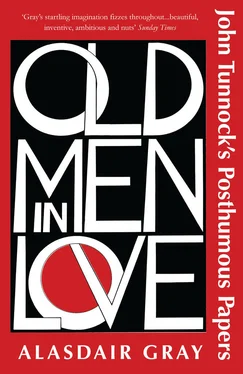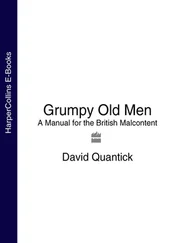Yet Wordsworth, Coleridge, Byron and Keats took his greatness for granted. Matthew Arnold thought his poetry second only to Chaucer’s, while regretting the ugliness of Burns’ Scottish subject matter because, No one can deny that it is of advantage for a poet to deal with a beautiful world . T. S. Eliot defends Burns for his choice of subjects because a poet should be able to see beneath both beauty and ugliness; to see the boredom, and the horror, and the glory . With sinister dexterity Eliot then calls Burns, A decadent representative of a great alien tradition — by which he meant that the great Scots pre-Reformation poets were courtiers and clergymen while Burns (like Melville and Hawthorne) never rose above the social rank of exciseman, and his poetic vocabulary was not used by royalty. Since a German dynasty was popped onto the British throne in 1714, who but Eliot has thought royalty a source or defence of profound speech? The Jolly Beggars’ chorus and its capitalized abstract nouns are in the polite standard 18 thcentury English Burns used when writing broad general truths. When writing about particularly Scots things — poverty, women gossiping, men getting happily drunk, a grotesque hypocrite at prayer, every kind of sexual love and also love of freedom — he used Scottish words. I am annoyed by daft Burns fans who forget his use of 18 thcentury south British mandarin speech. The song which ought to be Scotland’s national anthem, Scots Wha Hae , is nearly all romantic English clichés — Welcome to your gory bed or to Victory, Now’s the day and now’s the hour, See the front of Battle lour etcetera. It needs to be sung with a Scots accent because first line, Scots Wha Hae (the only line spelled in phonetic Scots) cannot be sung by singers who say Scots Who Have . Try doing it if you doubt me.
Grandpa Tunnock’s library introduced me to England’s national literature through three big stout leather-bound volumes of Shakespeare’s Histories, Comedies and Tragedies containing (said the title pages) the celebrated illustrations of Kenny Meadows. These sinister, almost surrealistic illustrations seduced me into the astonishing delights of Shakespeare’s language. Sometimes I went round for hours muttering a single phrase — sharked up a list of lawless resolutes also the cloud capped towers, the gorgeous palaces and also I am tame sir. Pronounce! Yet the joyful education I got from him, Burns, Balzac, Rabelais, Aristophanes were mostly unconnected with the schoolwork I was taught in order to pass exams and qualify for University. I would have hated Latin and Greek if the Gentleman Scholar’s Library had not proved what my classics teachers never suggested — Romans and Greeks enjoyed every kind of sex together with jokes about it. And my enriched reading certainly got me high marks for schools essays, persuading me writing would one day make me famous. This had to happen because my future fame would not come from physical strength, manipulative dexterity and a fine appearance. Plans for a literary masterpiece became more cloudily ambitious the more I read. I began filling notebooks with fine sentences to use in it. Finding so much goodness in an obscure library gave me a taste for discarded textbooks, biographies, slender volumes of forgotten poetry in second-hand shops and stalls. I believed most neglected books contained at least one exciting phrase that my great book would at last restore to general knowledge and make ENJOYABLE. It would also include love — erotic fantasies of a Rabelaisian and Robert Burns kind. I may have matured late but my sex in the head (as D.H. Lawrence called it) never stiffened my penis before I discovered pornography. Kraft-Ebbing’s account of sexual perversions in 19 thCentury Vienna intrigued but did not excite. My happiest hours were in the study before I learned to masturbate, but read, scribbled and fantasised about my eventual great book. I agreed with Keats who said, fine writing is, next to fine doing, the top thing in the world .
Study and school apart, Nan and Nell and I had a rich social life. We went to plays at the Glasgow Citizens’ Theatre, to symphony concerts at the St Andrews Hall, to Carl Rosa and D’Oyly Carte operas that came yearly to Glasgow, and to exhibitions in Kelvingrove Art Galleries. In these places we met friends of my aunts’ age and sex who treated me with the deference they felt due to a respectable dominant male. But at home my aunts so worried about me having no friend of my own age that at last I invented one.
One boy in my class was as friendless as myself. His clothing indicated a poorer home than most of us. His face was pitted by acne scars and his movements were awkward and jerky, maybe from an early attack of infantile paralysis. There was a rumour that he should have gone to the Junior Secondary School, but had only passed the qualifying exam to the Senior Secondary because the examiners pitied him. Unlike me, who was mocked, Stewart Doig (nicknamed Stoory Doig 28) was simply avoided. Nobody sat beside him in class if there was an empty seat elsewhere. When there was not I had to sit beside him, at which times he would try to start conversations which I discouraged, because like most outcasts who long to be accepted by a majority I disliked others in my situation. When I said this boy was my school friend Nell and Nan, who often spoke simultaneously, cried, “Bring him home to tea!” 29
I hid my horror of the idea by saying sadly, “Impossible. He has a widowed mother who keeps him on a very short leash. She frets a lot if he doesn’t eat with her — she’s a bit of an invalid who has very little company — and he’s a very devoted son.”
Nell cried, “O poor woman!” and Nan, “And poor boy! We must do something to help. Perhaps we should visit them?” “No,” I said, shaking my head, “His mother may be poor but she’s very proud and would hate anything like condescension.”
“You’ve met his mother?” said Nan, surprized.
“No, but he talks a lot about her, and that’s the impression I get.”
This sounded inconclusive and unconvincing so I added, “I’ve been invited to their house for a meal once or twice, but honestly, I prefer eating with you.”
“But you must go!” they cried and, “The poor woman will be glad to see her son has got at least one good friend,” said Nell, and Nan said, “It will be a rare social occasion for her. I will bake a cake for them and you must also take a bunch of flowers.”
This conversation left me astonished by the ready stream of lies I had smoothly told, but depressed by the consequences. From now on my aunts wanted reports about Doig and his mother, who really was a widow but not (as far as I knew) an invalid. Nell and Nan were so pleased with this fiction of my new friend that I had no heart to destroy it by telling the truth or inventing a quarrel with Stoory that would make reconciliation impossible. A time came when I could not postpone a visit to his home so set off one Saturday after lunch with a bouquet of chrysanthemums in one hand, in the other the briefcase containing a bottle of dry sherry and rich dark fruit cake in a cardboard box. When out of sight of the house I turned north instead of south, went quickly through Botanic Gardens to the Ha’penny Bridge, chucked the flowers into the river as I crossed and then turned upstream along a path that is now the start of the West Highland Walkway. It was a grey day and thin rain began to fall. I passed the great weir serving the west bank paper mill and under an arch of Kelvingrove Aqueduct 30sat down on a lump of rubble and took out cake-box and bottle. Even on bright summer days this is a dank, dreary place but few folk pass that way and that Saturday it suited my mood. I opened the box, broke off handfuls of cake and stolidly ate them between swigs from the neck of the bottle. My previous experiences of alcohol had been small glasses of hot toddy brought to me in bed with an aspirin pill when a cold looked like coming on. I had never before drunk at one sitting a whole bottle of anything . As the sherry went down my gloom gave way to foolish, light-headed cheer. I flung the bottle away, stood up and everything seemed spinning and tilting round me. By an effort of will I stopped that happening, which added a sensation of power to my strange cheerfulness. Leaving most of the cake for birds and rodents I strode up to the Maryhill Road and along the busy pavement, amazed that nobody seemed to see how drunk I was. Either my self-control was super-human or other folk had also secretly drunk too much and were too busy disguising the fact to notice my condition. This last explanation seemed most probable and enhanced my sense of total freedom.
Читать дальше












